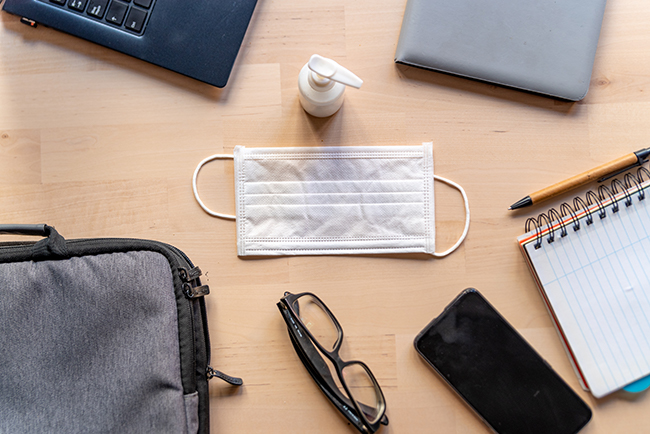
During these uncertain times, we must remember to act quickly to effectively accommodate the medical needs of National Institutes of Health (NIH) employees and applicants, while ensuring those individuals are protected from disability discrimination.
Question: With that in mind, how can we ensure the accommodation needs and rights of people with disabilities are protected during a pandemic?
Answer: Managers/Supervisors should engage in an expedited interactive process with their employees to determine the workplace barriers experienced by the individual and possible immediate accommodation(s) to overcome those barriers (while keeping in mind the general guidelines of ADA disability-inquiries for pandemics). Managers/Supervisors should try handling all pandemic-related Reasonable Accommodation (RA) request approvals through managerial authority if the need is urgent. Still, for any questions or RA denials, they must contact NIH Reasonable Accommodation Program team, who manages the NIH RA program, immediately.
Below are six simple steps managers should take:
-
Follow EEOC Guidance regarding Pandemic Preparedness in the Workplace and ADA.
This guidance is essential to understand the parameters of disability-related inquiries for pandemics. It includes information on what steps a manager can take when an employee exhibits signs and symptoms of exposure, what inquiries an employer can/cannot make, and what is the direct threat analysis of an employee who may have exposed. EDI can be contacted for further questions on this guidance at EDI.Guidance@nih.gov.
-
Base accommodations on each individual situation.
The accommodation process requires a case-by-case approach based on the surrounding circumstances, which right now includes the preparations for COVID-19.
Even if it is provided for this situation, it does not mean the same RA has to continue once employees are back in the office. Managers are not under any obligation to continue accommodations provided (such as enabling teleworking due to COVID-19) after the crisis is over, and should contact EDI if they have any questions regarding a removal of temporary accommodation measures.
Providing an accommodation during a crisis to continue operations does not necessarily create a precedent.
-
Encourage employees to be flexible by acknowledging the extenuating circumstances.
Let people know that things could take longer right now. The NIH RA process’s written procedures should still be followed, but the timeliness for processing and providing RAs were not developed with the idea that a pandemic would require urgent accommodations and accommodations that were not designed to be implemented quickly (such as mass teleworking).
-
Work with employees on alternatives if a current accommodation cannot be transferred to the home.
If the employee's onsite accommodation is not possible at home, work with the individual to find an alternative that can be provided at home, and ensure the individual understands why this is an extraordinary circumstance.
-
Evaluate personal assistant services cases (PAS) carefully.
Managers should assess potential PAS needs if they are receiving PAS requests during this time. Those in need of PAS services should contact EDI.
-
Managers/Supervisors should take notes about functions that could not be performed remotely.
Managers/Supervisors should keep notes of any essential functions that could not be performed remotely during this crisis period. That will aid management and employees with setting expectations when transitioning back to the regular (non-crisis) schedule. EDI can be consulted with any questions about this.
Resources
- EEOC Newsletter from 3/18/2020 on "What You Should Know About the ADA, the Rehabilitation Act, and COVID-19"
- EEO Toolkits
- Contact Reasonable Accommodation Consultant
- EEOC Pandemic Guidance in the workplace and The American with Disability Act
- NIH Guidance for Staff on Coronavirus
- EEOC Enforcement Guidance and Undue Hardship under the ADA
- Final Rule on Affirmative Action for Individual with Disabilities in the Federal Employment
Do you have a story idea for us? Do you want to submit a guest blog? If it's about equity, diversity, or inclusion, please submit to edi.stories@nih.gov.
For news, updates, and videos, follow or subscribe to EDI on: Twitter, Instagram, Blog, YouTube.






